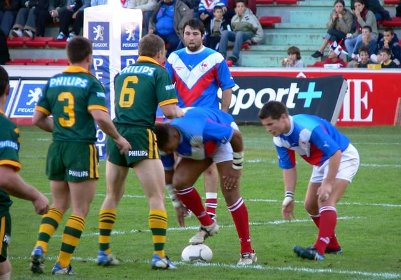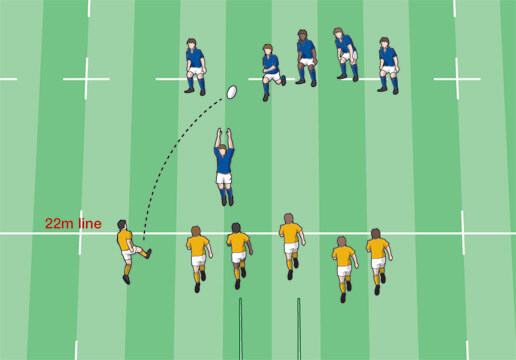Written by D. Mitchell. Only posted by Bobas.
“Play the man” and “play the whistle”, the wallabies win on the weekend showed clearly that these clichés have had their day. The Wallabies showed off a bold new strategy, sometimes just “don’t play at all”. You might call it lazy play, but like a Kung-Fu master they decided to adopt a stance where they could defeat movement with stillness. Perhaps some of the coaching staff and senior players have been brushing up on their eastern philosophy expecting a season or two in Japan, but this is the kind of out the kind of inventive rugby I love to see (as evidenced here and here). So here’s a rundown for four areas of play to achieve something, while doing nothing at all.
1. The Lineout
Teams have known for a long time that sometimes the best defence is achieved by not contesting the ball. Expecting the maul, but being ready to slide across to cover the backs, the forwards don’t jump to contest, but instead wait for their opponent to land before they strike. On the weekend, the wallabies added poison to this move. Rather than play hard defence, they played smart defence which forced the referee to penalise the attacking team.
They moved like they would form a maul, but never engaged. If the ball was passed they would move in on the front. If the ball was held at the front they would push in from the side or back. With no maul formed, but the South Africans surrounding the player, the referee had no choice but to penalise them for obstruction.
Here’s where you take it to the next level: start doing it on your own throw in. Once again an underarm throw would work nicely. Toss it high up to give the opposition every chance to catch the ball and set their maul up well, without a maul ever actually being formed.

2. Receiving The Kickoff
Why rush to collect the ball when it is kicked to you? It’s tiring and you risk dropping the ball or being smashed as soon as you hit the ground. You could lose possession and put the other team in the driver’s seat. Short kicks you’ll have to take, there will be too much opposition in close otherwise. Long kicks you’ll have to fetch, too much risk of a try being scored or a tight lineout if the ball dribbles out of play. But all those kicks within about 5m of the 22m line? Don’t bother.

The opposition will send one or maybe two players to chase hard – you’ve got more than that around the ball – so let them have it. As soon as they touch the ball, have your defensive trap ready to snap shut on them. Force a turn over or even more preferably a knock on or penalty. Then you’ll be nicely set up for a kick down field. Alternatively, if the ball goes out near the 22, you implement the strategy above.
3. Scrum time
Trying to get a hooker to lift their leg up and over the ball to pull it back while holding the opposition back is too much work. There are frequently scrums where the pressure is too great for a hooker to make a decent strike. So strike forwards not backwards.

Kicking the ball into the opposition during a scrum might seem like a brain fart, but it will almost certainly disrupt their defensive scrum setting allowing your team to demonstrate dominance. And when your team knows that the plan then your half back or breakaways can be quick to leave the scrum if the ball squirts out, giving you possession already over the advantage line.
4. The 22m Drop out
In Union, there is no requirement for the ball to travel 10m off a drop out. It only needs to cross the 22m line. A common trick has been for players to simply roll the ball over the line with their foot and regather. As such most defensive teams have a player mark the kicker from just the other side of the 22m line. Don’t kick it over the marker, gift the ball to him.

Organise a little forwards conference behind your kicker in the lead up to the drop out. As the punter moves to kick, the meeting should break up, and the forwards charge headlong at the poor fool marking the kicker. A little stab pass later, and once again you can force a turn over, hopefully a knock on or penalty. Best of all, it will mean the opposition will over commit at the front on the next 22, giving your punter a better shot at finding grass on a long range kick.
What other ways can you achieve something while doing nothing on the rugby field? Let me know in the comments.


